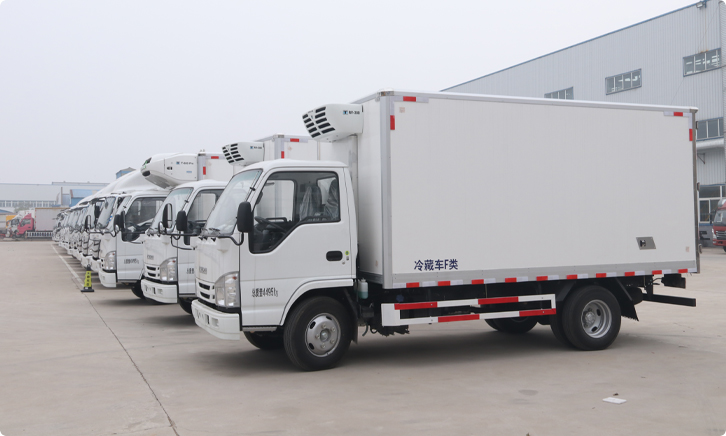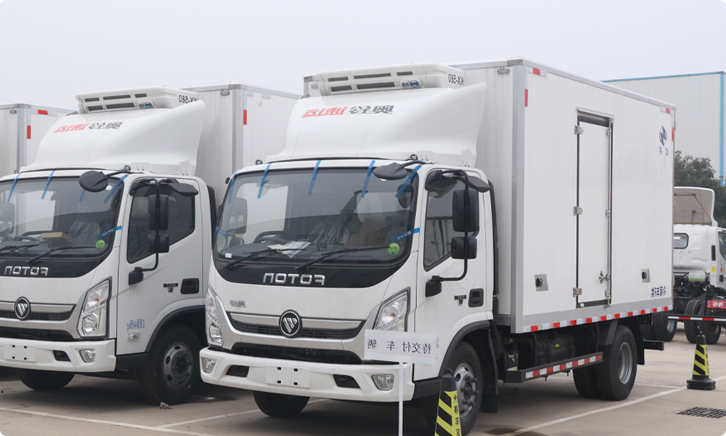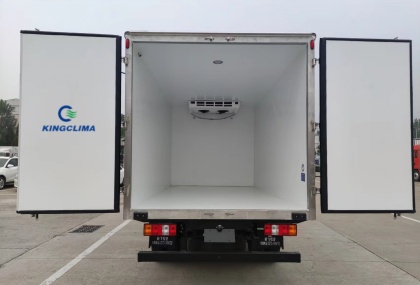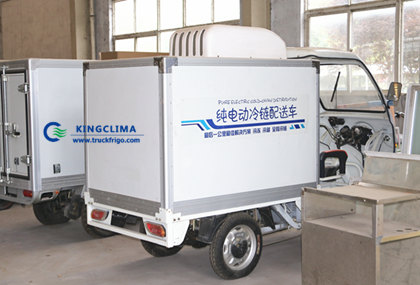How to maintain van refrigeration unit in the winter?
Maintaining a van refrigeration unit during the winter months is essential to ensure it operates efficiently, keeps your cargo at the correct temperature, and avoids unnecessary wear or damage. Cold weather can present specific challenges, such as frozen components, reduced efficiency, and increased energy consumption. Below are key tips for maintaining your van refrigeration system during the winter season:
1. Keep the Refrigeration Unit Running Regularly
Avoid Long Periods of Inactivity:
Refrigeration units rely on continuous operation to maintain efficiency and prevent issues like freezing or ice build-up. Even in cold weather, it's essential to run the system regularly to ensure the refrigerant circulates properly and prevent the unit from freezing up.
Use the "Defrost" Setting:
Many modern refrigeration units have an automatic defrosting feature. Ensure that it is working correctly, especially in freezing temperatures, to avoid ice accumulation on the evaporator coils.

2. Protect from Extreme Cold
Ensure the Unit is Insulated:
Good insulation on the refrigeration unit’s compressor and other critical components will prevent freezing and reduce the energy needed to maintain internal temperatures.
Cover the Refrigeration Unit:
In extremely cold environments, consider using weatherproof covers to shield the refrigeration unit from snow, ice, and freezing winds, which can cause freezing or excessive wear on the system.
Insulate the Cargo Space:
Double-check that the cargo area is well-insulated. This will help keep the internal temperature stable, reducing the load on the refrigeration unit.
3. Monitor the Battery and Electrical System
Cold Weather Can Drain Batteries:
In winter, your van’s battery may not perform as well, especially if it is an older battery. Make sure to monitor the battery charge regularly and ensure that the battery is in good condition. Consider installing a battery heater to prevent freezing and help maintain power for the refrigeration unit.
Check the Electrical Connections:
Cold temperatures can cause electrical connections to become brittle or corroded. Inspect the wiring and connectors to ensure they are clean and secure.
4. Use the Right Refrigerant and Lubricant
Check Refrigerant Levels:
Low refrigerant levels can affect the efficiency of the refrigeration unit, especially in cold weather. Regularly check the refrigerant levels and top them up if necessary.
Ensure Proper Lubrication:
Cold weather can cause lubricants to thicken, leading to excessive friction and wear on moving parts. Ensure that the system is properly lubricated with appropriate winter-grade lubricants to prevent mechanical failures.

5. Prevent Ice Build-Up
Regularly Clean Coils and Filters:
Dirty condenser and evaporator coils can hinder heat exchange and cause the unit to work harder, especially in cold weather. Clean coils regularly and replace air filters to ensure optimal airflow.
Check for Ice on Evaporator Coils:
If ice forms on the evaporator coils, it can block airflow and decrease cooling efficiency. Make sure the defrost system is operating correctly, and manually defrost if necessary.
Prevent Water Accumulation:
Ensure that any water from melting ice is properly drained from the system to avoid freezing inside the unit.
Conclusion
Maintaining your van refrigeration unit in the winter is essential to ensure its efficient operation, minimize the risk of damage, and extend its service life. As a van refrigeration supplier, Kingclima offers professional and patient help, if you need, please contact us at any time.




